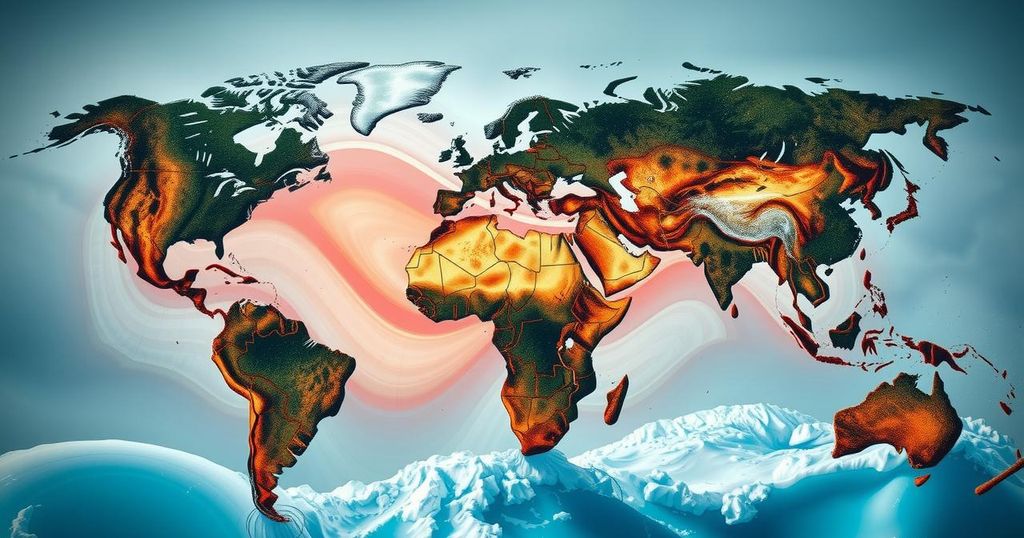Year-End Review 2024: The Devastating Effects of Climate Change
The year 2024 was characterized by ongoing extreme weather events attributed to climate change, with high temperatures affecting populations globally. While some regions faced intense flooding, others struggled with severe droughts, such as in the Amazon. Amidst these challenges, over two billion individuals lacked access to safe drinking water, prompting urgent calls for action regarding the climate crisis and water scarcity.
The year 2024 witnessed extreme consequences of climate change, continuing a troubling trend from 2023, where heat records were reportedly surpassed. Despite expectations of a cooler year following the El Niño phenomenon, temperatures remained high, impacting populations worldwide. In desert regions like Merzouga, Morocco, significant rainfall created unusual water pools among dunes, whereas areas such as the Amazon experienced devastating droughts, highlighting the erratic distribution of water caused by climate shifts.
In the Northern Hemisphere, winter arrived with its relief from heat but also brought stark reminders of climate change, including winter wildfires. Extreme weather conditions resulted in floods, displacing residents in countries like Uruguay and Brazil, and causing chaos in regions such as India and Nigeria, where students navigated flooded streets and communities faced extensive damage to homes and livelihoods.
Globally, more than two billion individuals lack access to safe drinking water, a dire statistic that underscores the challenges posed by climate change. Earth’s beauty persisted amid the destruction, as evidenced by the picturesque scenes in Churchill, Manitoba, known as the polar bear capital. This juxtaposition of devastation and splendor starkly illustrates the complexities of climate change’s impact on our planet.
Climate change remains a pivotal global issue, directly influencing weather patterns and leading to unprecedented natural disasters. In 2023, numerous countries reported extreme weather events, which continued into 2024. The El Niño weather pattern, typically associated with fluctuations in global temperatures, was anticipated to bring a respite; however, temperatures remained alarmingly high. This ongoing climate crisis is emphasized by the inequality in water access, with over two billion people still lacking safely managed drinking water as of 2024, exacerbating the humanitarian implications of environmental changes.
In summary, 2024 was marked by relentless climate change impacts, manifesting in extreme weather patterns, devastating floods, and severe droughts. The global community continues to grapple with the consequences, witnessing both the destructive and beautiful aspects of nature. Urgent action is necessary to address the disparities in water access and mitigate the effects of ongoing climate change, to ensure a sustainable future for all.
Original Source: www.indiatvnews.com




Post Comment